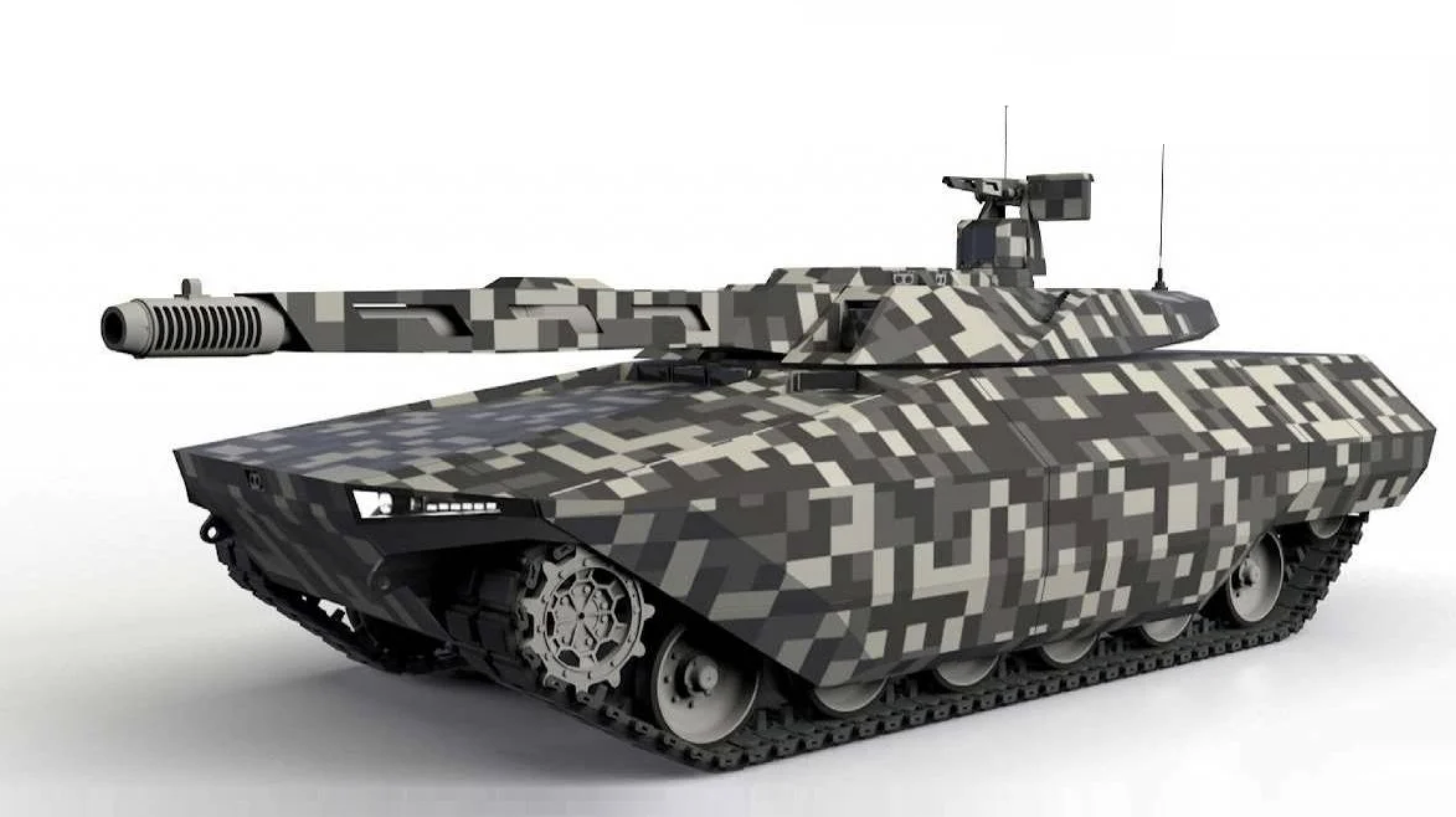By Pierre Tran
Paris – Arquus, a French builder of light and medium armored vehicles, has pitched the concept of a hybrid diesel-electric as an alternative to a conventional diesel engine for a planned tank for the French and German armies, executive chairman Emmanuel Levacher said March 10.
“We have proposed a large hybrid engine,” he said on the sidelines of a news conference on 2020 financial results.
Arquus has pitched the concept to Nexter, the French systems integrator and prime contractor in the Main Ground Combat System, a cooperative project looking to replace the French Leclerc and German Leopard 2 heavy tanks in 2040.
Arquus is a subsidiary of Volvo, a Swedish truck maker.
A Nexter spokesman confirmed there were talks over the hybrid concept.
The hybrid concept draws on two motors, one diesel, the other electric, with the latter used to power electronic systems on board, with the diesel engine switched off while the tank is static.
An electric motor can recharge batteries, and offers stealth and silent operations, with the tank’s heat signature lowered when the diesel engine is turned off.
An electric motor could also power laser instruments fitted on the tank.
If Arquus were to supply a hybrid engine, the company would ship a military version of Volvo heavy truck motors, and its own electric motor.
The proof of concept is the Arquus Scarabée, an eight-ton, four-wheel drive light armored vehicle, which had a commercial launch at the Idex trade show for land weapons, which ran Feb. 21-25 in Abu Dhabi.
Arquus gave a live demonstration of the Scarabée in September, at Versailles, just outside the capital.
Much is riding on the Scarabée, a flagship offering Arquus will pitch as a replacement for the French army’s véhicule blindé léger (VBL) scout car. France has yet to launch a tender, but the company launched the project in 2018 and invested own funds to develop the vehicle in reconnaissance and combat versions.
The Scarabée is pitched at a high-end niche market, such as special forces, with a small number of potential client nations. Operators can opt for a version with a battle management system.
The company will need to convince prospective clients the hybrid vehicle is fast enough and has sufficient range, an arms specialist said. A hybrid car in town has nothing in common with a hybrid-powered combat vehicle in the field.
The French army has a 1,600-strong VBL fleet to be replaced, with a competition likely to be open to European suppliers.
Arquus has also set up a Hornet business unit, seeking export sales of its remote control weapon station, a system fitted on the Griffon multirole troop carrier, and Jaguar combat and reconnaissance vehicle, two key elements in the French army’s Scorpion modernization program.
Arquus seeks to win five to 10 percent of world sales in remote weapon systems and will encounter stiff competition from Kongsberg, which holds an estimated 60 percent of the world market. Much of the value lies in the weapon system rather than the guns, with client nations free to choose weapons ranging from 7.62 mm machine guns to 40 mm grenade launchers.
On Arquus’s 2020 profitability, the results were below those of the previous year and were “slightly positive,” Levacher said. There were extra costs and a 50 percent drop in exports due to COVID 19. A foreign sale of 200 Bastion armored personnel carriers was postponed last year, reflecting increased uncertainty and budget cuts.
Budgets were slashed even if demand was there, he said.
“Competition is brutal,” he said, with low barriers to entry into the market, with aggressive competition from emerging markets. There is competition from Turkey, South Korea and South Africas for light armored vehicles.
Armies trailed in the defense budget compared to the air force and navy, he said.
The outlook for 2021 was for a year of recovery, he said.
The aim for 2021 is to post a 10 percent rise in sales, following the 10 percent drop in 2020, he said.There had been fears of a bigger fall in sales. Sales in France rose 23 percent last year.
The target is an average annual sales growth of five percent, hitting €1 billion ($1.2 billion) by 2030, seen as delivering critical mass, he said. Annual sales have been around €600 million.
The book-to-bill ratio of sales to orders was 1:1. The order book was stable at €5.5 billion, of which €1.3 billion were orders, with the remainder including optional tranches of orders.
There is need for some caution as there is “low visibility,” but the company remained ambitious, he said. Service has contributed 42 percent of sales, and the aim is to increase that to 50 percent, with the balance coming from production.
The company is reorganizing four factories around specialization, with Saint-Nazaire, western France, working on service support; Marolles, near the capital, making military modifications to motors, and building and repairing vehicle parts; Garchizy, central France, building armored cabins and delivering spare parts; and Limoges, central France, building new vehicles.
Some €8 million is being spent on the Limoges plant, and €2.5 million over three years for Saint-Nazaire.
MTU supplies the diesel engine on the Leopard 2, while Leclerc has a Wartsila motor.
The featured graphic is taken from the following source:
Germany, France to spend €200 million on next-gen main battle tank


